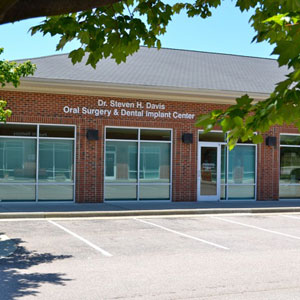Depending on the type of procedure you require, it is possible that your oral care provider will suggest sedation. Although the concept of being under anesthesia is not always pleasant, it may be necessary for patients to avoid pain and anxiety. Knowing what to expect can help mentally prepare you for your treatment.
Why Do I Need Anesthesia?
General Anesthesia is an important part of your oral surgery. It will cause you to relax, and possibly fall asleep, allowing the oral surgeon to easily operate and complete your procedure with a minimum of difficulty.
Who Will Administer Anesthesia?
A trained, certified anesthesia practitioner will determine and administer your dosage. Your anesthesiologist should consult with you about a variety of factors that will ensure you have a safe experience. Important factors to discuss are:
- your medical history
- any medicine you are taking – prescribed/over the counter, even vitamins and supplements
- tobacco/alcohol/illicit drug use
- allergies
- history of anesthesia – you and your family’s
- what you need to do to prepare – e.g. Do NOT eat or drink prior to treatment
What Type of Sedation Will I Receive?
Depending on your needs, you oral surgeon will discuss what sedation method is best. There are 3 common options:
- Nitrous Oxide – Inhaled. This mild and short-lived sedation provides pain relief and produces a calm and relaxed state
- Oral Sedation – prescribed pills/tablets administered in office. Reduces panic and anxiety, and lasts longer than Nitrous Oxide
- IV Sedation – controlled dosage through intravenous application. Depending on your need, differing levels of sedation can be given. Most patients will sleep through the procedure
What Are Sedation Side Effects?
During your procedure your vital signs like blood pressure/heart rate, etc., will be monitored by a nurse or doctor. Typically, any side effects are short-lived but everyone’s biochemistry is different. A patient may experience a 24 hour period where side effects are present. Contact your care provider if side effects last longer. Some common side effects are:
- nausea/dizziness
- drowsiness
- shivering
- weakness
- muscle aches/headaches/vision distortion
Complications are very rare but are a possibility. With the administering of anesthesia, it is important to honestly communicate with your health care provider. Make sure you avoid substances like alcohol, sedatives, OTC meds and drug use during recovery.
Consult with Your Raleigh Oral Surgeon
Having questions and being a little uncomfortable about being sedated are natural. By having a thorough and honest dialogue with your oral surgeon, you can help reduce stress and anxiety associated with any procedure.
Dr. Davis and the experienced staff at Davis Oral Surgery & Dental Implant Center want you to feel confident about your oral treatment. Call 919-488-2194 or complete our online contact form today and set up a consultation!
